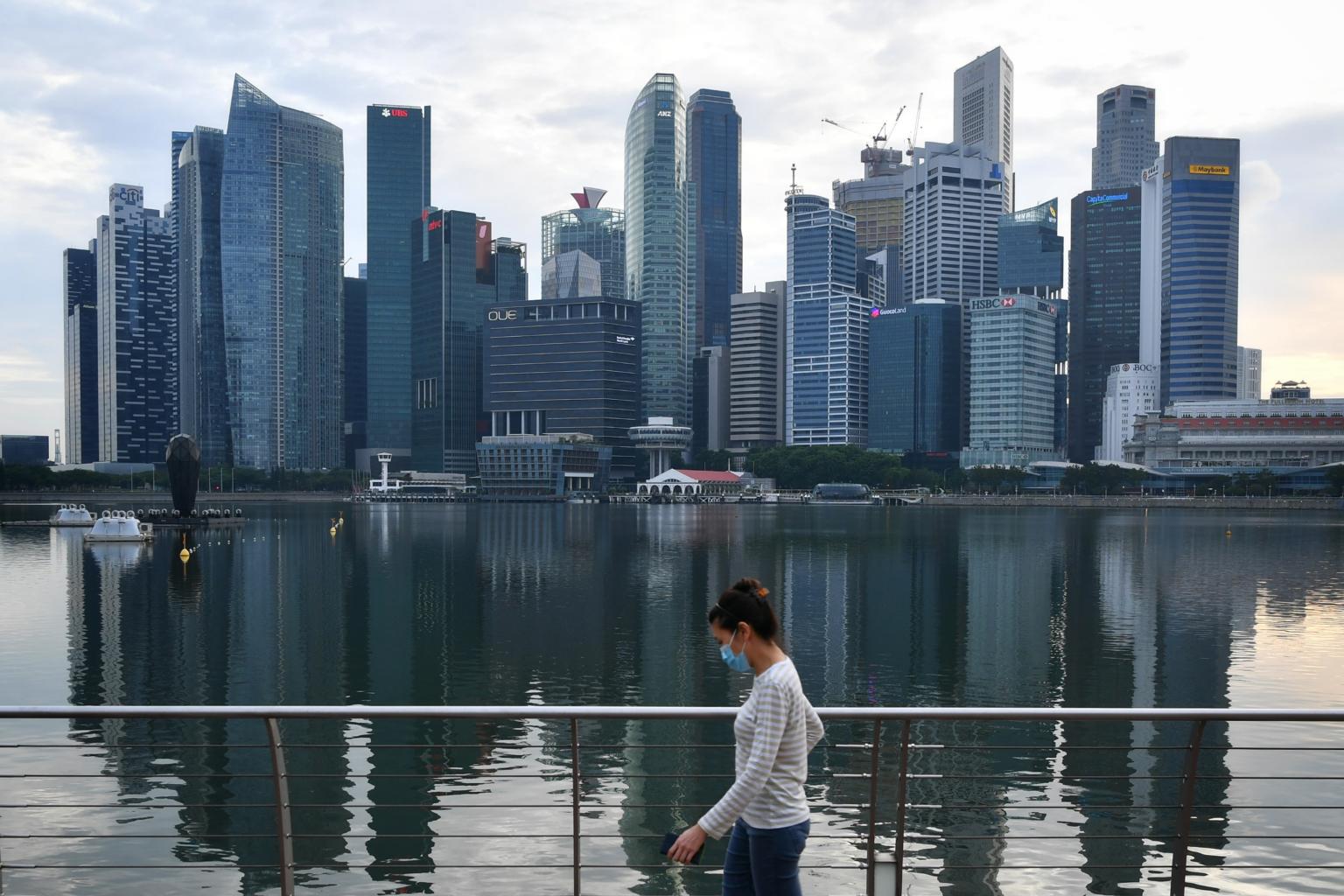Bankruptcy cases in Singapore at 5-year low amid Covid-19 relief measures
Sign up now: Get ST's newsletters delivered to your inbox

The number of those made bankrupt fell over 40% last year, but could rise as measures wind down.
PHOTO: ST FILE
Follow topic:
SINGAPORE - Even as the Covid-19 pandemic ravages the economy, the number of people who were made bankrupt last year sank to the lowest in five years.
Bankruptcy orders tumbled more than 40 per cent to 965 from 1,645 in 2019. Figures from the Law Ministry's Insolvency Office website showed more than 1,600 bankruptcy orders were made annually between 2016 and 2018.
Experts said the drop in numbers could be due to the Covid-19 (Temporary Measures) Act and government support schemes which provided temporary relief for financially distressed individuals.
Lawyer Chia Boon Teck of Chia Wong Chambers said: "Pre-Covid-19, the law allows a debtor 21 days to pay up on a statutory demand. However, the Covid-19 (Temporary Measures) Act 2020 extends the 21 days to six months. This in effect puts a five-month moratorium on outstanding debts."
The Covid-19 law also raised the minimal debt from $15,000 to $60,000 so debtors owing less than $60,000 are not exposed to threats of bankruptcy, he added.
Last year, bankruptcy applications fell to 2,833 from 3,473 in 2019, reversing an upward trend since 2014.
"The twin measures probably account for the drastic drop in bankruptcy applications," said Mr Chia.
Maybank Kim Eng senior economist Chua Hak Bin said bankruptcies could have been far worse if not for the fiscal support and relief measures that also saw "the freezing of creditors' rights to commence legal action for default until late 2020".
Figures from the Insolvency Office website also showed corporate insolvency numbers fell, with 206 applications filed for winding up between January and November last year, down from 368 in the same period in 2019.
Said Dr Chua: "We expect the number of bankruptcies to increase in 2021 as the fiscal support and temporary relief measures are wound down."
He added that such measures can help only firms suffering from a temporary liquidity crunch, "but cannot save firms which are no longer viable in this new normal".
Among the high-profile bankruptcy proceedings last year was a bankruptcy bid filed against local hardware chain Home-Fix's founder Low Cheong Kee and his younger brother by paint manufacturer Nippon Paint (Singapore) over a debt of $500,000.
Political party Peoples Voice's leader Lim Tean also faced bankruptcy claims totalling about $1.45 million.
Mr Nelson Loh, who was behind an audacious bid to buy English Premier League football club Newcastle United last year, was adjudged a bankrupt by the Singapore High Court in December. He had failed to pay an outstanding debt of over $14 million to DBS Bank.
His cousin Terence Loh is also facing bankruptcy proceedings filed by Maybank over a $3 million debt.
George (not his real name), a 50-year-old bankrupt, said: "The government relief measures only helped to delay the proceedings. Financially distressed individuals would still be struggling to raise enough money to pay their debts amid the pandemic."
He said he filed for bankruptcy as he was unable to pay his debts of over $100,000 to various banks.
"Some people may think I had chosen the easy way out, but it's not. It was a difficult decision to make. Many companies will not hire me because I am a bankrupt. And I also can't manage a business or act as director of a company."
As at Dec 31, there were 10,269 undischarged bankrupts.
A bankrupt may try to have his bankruptcy status annulled after paying off all outstanding debts. He can also apply to the High Court to grant him a discharge or the court-assigned administrator may discharge him after at least three years of good conduct, provided his debts do not exceed $500,000 and his creditors do not object.

